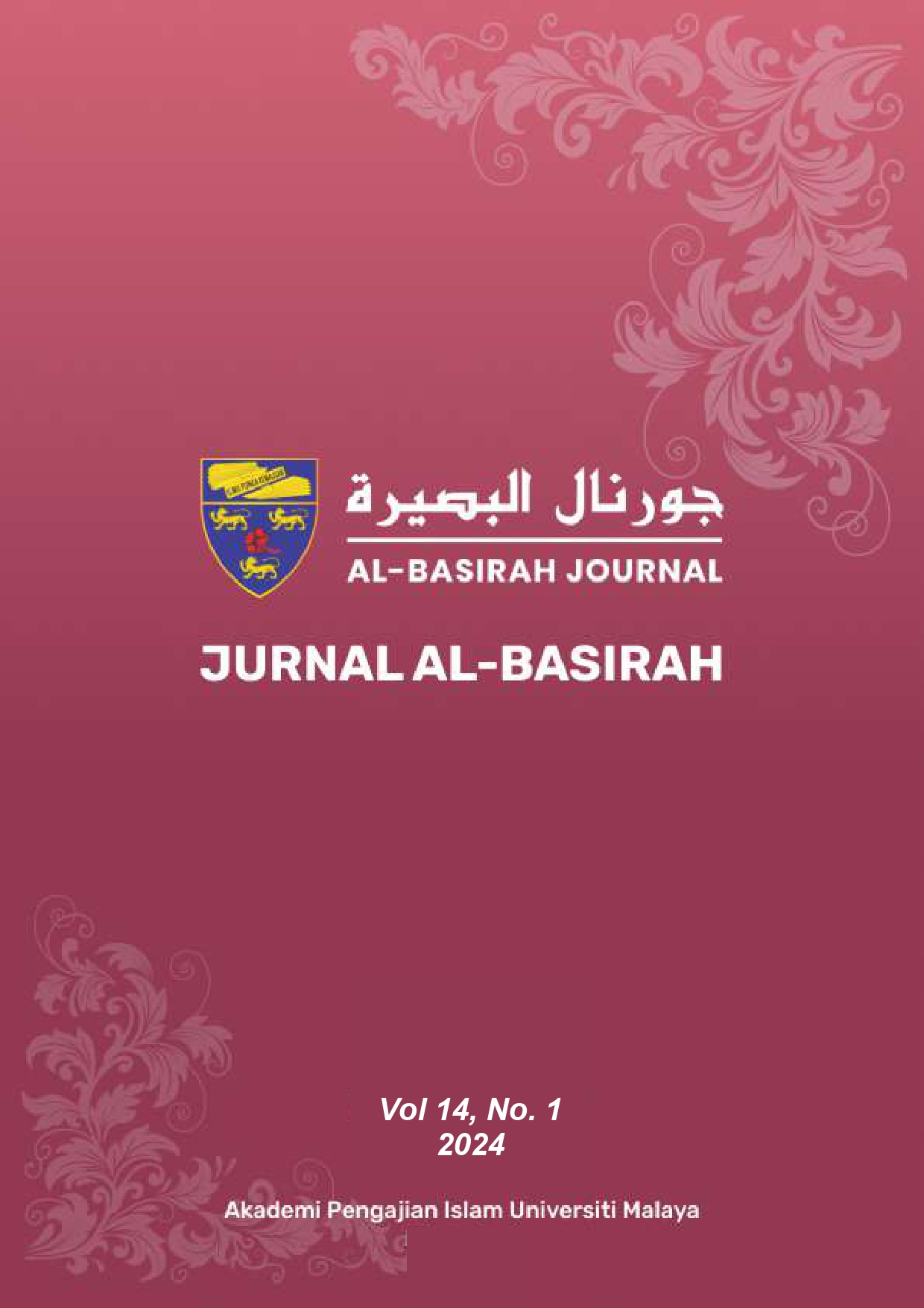Pengurusan Ibadah Pesakit Kecelaruan Mental: Kajian Dari Perspektif Qawaid Fiqhiyyah
Ibadah Treatment of Mentally Disordered Patients: A Study from Qawaid Fiqhiyyah’s Perspective
DOI:
https://doi.org/10.22452/basirah.vol14no1.1Keywords:
Mental disorders , Worship, Qawaid Fiqhiyyah, FiqhAbstract
A mental disorder can impact a person's interpersonal, emotional, and cognitive abilities, including their capacity for worship, since it frequently contributes to the instability of mental function. Patients with mental disorders often experience difficulties in performing worship due to emotional stress and thought disorders which may lead individuals to lose their sanity periodically. This study will identify the factors that affect mental illness and then apply qawaid fiqhiyyah in the practice of worship for patients with mental illness. This study is qualitative in nature and collects data from a variety of sources such as the book of usul al-fiqh, contemporary fiqh, scientific studies, and related articles. The study's findings indicate that a number of factors, including family upbringing, social support, environmental factors, and biological factors will lead to mental illness. Inadequate stress management will result in the increase of mental problems among children, adolescents and adults. Furthermore, the results indicated that qawa'id fiqhiyyah can serve as the fundamental framework for establishing a person's eligibility to perform (ahliyyah al-ada') and for managing patient worship based on issues related to mental health disorders.
















